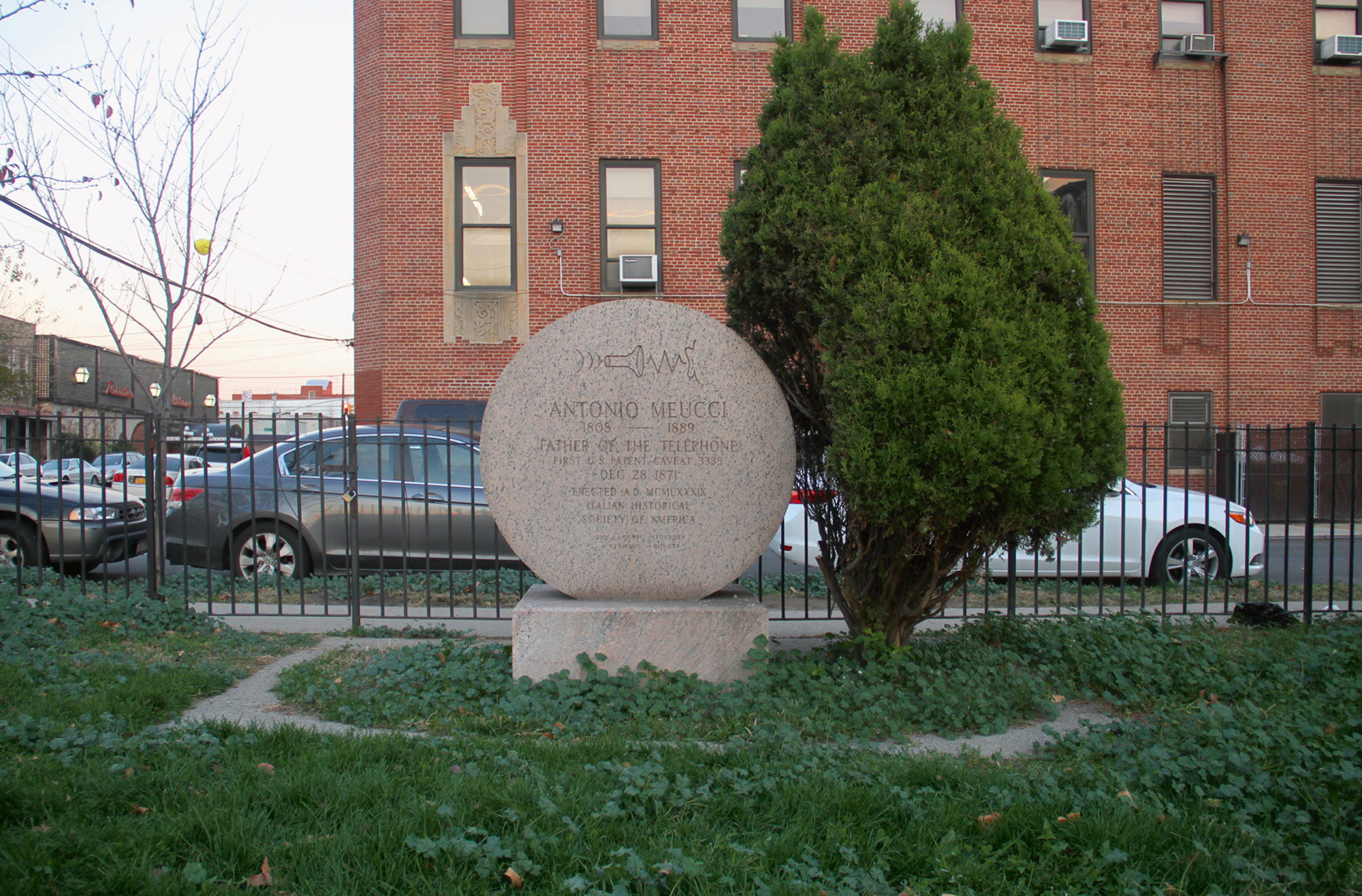A Phony Claim?
Antonio Meucci contra Alexander Graham Bell
Margherita Peliti

It is my heart-warm and world-embracing Christmas hope and aspiration that all of us—the high, the low, the rich, the poor, the admired, the despised, the loved, the hated, the civilized, the savage—may eventually be gathered together in a heaven of everlasting rest and peace and bliss—except the inventor of the telephone.
—Mark Twain, New York World, 1890
On 11 June 2002, the United States House of Representatives passed Resolution 269, sponsored by then-Congressman Vito Fossella, of Staten Island, New York. The resolution honors “the tragic and extraordinary career” of Italian-American inventor Antonio Meucci, and suggests that Alexander Graham Bell might have arrived at his most famous invention by less than scrupulous means. The parliament of Canada, where the Scottish-born inventor spent much of his adult life, responded just ten days later by passing a motion stating that “Alexander Graham Bell of Brantford, Ontario and Baddeck, Nova Scotia is the inventor of the telephone.”
Born in 1808, Meucci studied mechanical engineering, chemistry, and physics in his native Florence. According to one biographer, already as a seventeen-year-old the inventor had been hired, along with others, to produce a pyrotechnic display in celebration of the grand duchess of Tuscany; the festivities quickly turned into mayhem, however, possibly due to a powerful new propellant that Meucci had devised. Out-of-control rockets landed among the crowd that had gathered in Piazza della Signoria, causing damage and injuring a few onlookers. Meucci was suspected of deliberately sabotaging the celebration, and only narrowly escaped a criminal conviction.
In the 1830s, more trials followed—for negligence as an employee and other minor offences, and for involvement in plots for the unification of Italy. This last accusation landed Meucci in jail for several months during 1833 and 1834. The following year, the inventor was offered the job of chief stage engineer at the Tacón Theater in Havana, Cuba, and seized the opportunity to flee Italy.
During his tenure at the Tacón, Meucci delved deeply into the study of galvanism. He developed an interest in medical electricity theories, and repurposed part of the theater to serve as his laboratory. One day, while administering electrical shocks to an ailing employee, Meucci heard the man’s screams as if they emanated directly from the wire—and understood immediately, as he himself was to recount several decades later, that speech could be transmitted electrically. One year later, in 1850, the inventor immigrated to Staten Island, where he planned to follow up on his discovery. Bell was then only three years old.